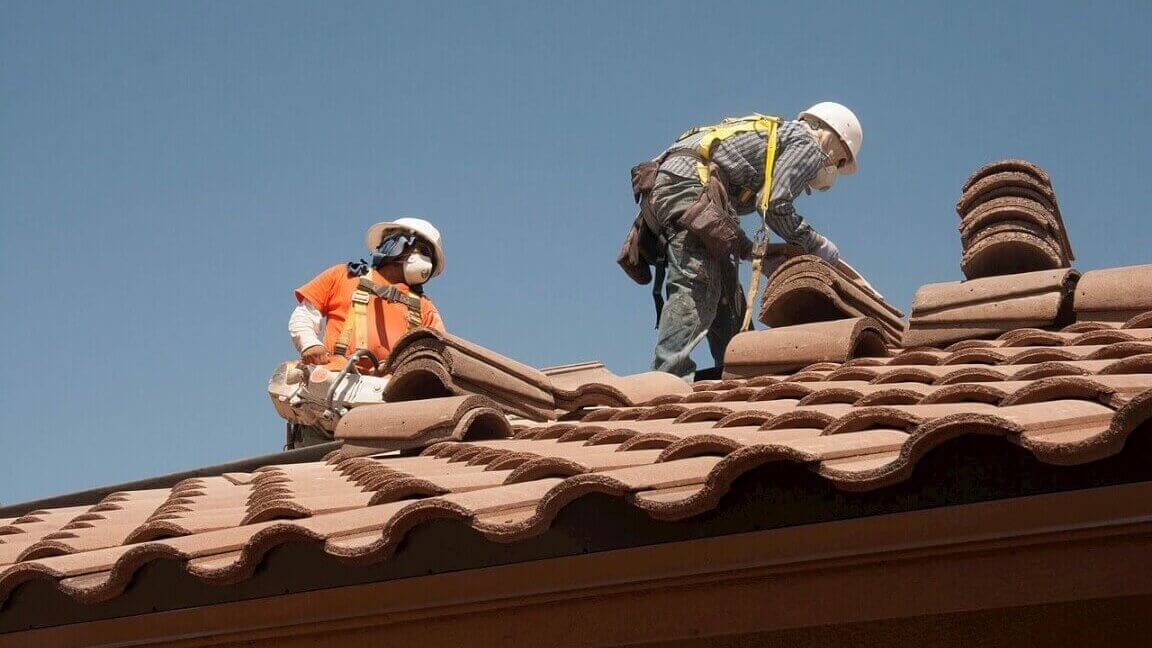Introduction
Investing in a new roof is a significant decision for any homeowner, and it’s essential to have all the necessary information before making a choice. This article aims to address common questions and concerns related to new roof installations, providing the knowledge needed to make informed decisions.
We at PLJ are the leaders in carpentry services in Cape Cod, MA, and specialists in roofing services.

Click here and get a free quote for your roofing project with PLJ Carpentry
What are the Different Types of Roofing Materials?
Asphalt Shingles
Asphalt shingles are one of the most popular roofing materials due to their affordability and versatility. They come in various colors and styles, making them suitable for different architectural designs.
Metal Roofing
Metal roofing offers durability and longevity, making it an excellent choice for homeowners looking for a long-term roofing solution. It’s resistant to fire, mildew, and pests, making it a low-maintenance option.
Tile Roofing
Tile roofing provides a classic and elegant look to homes while offering excellent durability and weather resistance. It’s available in clay or concrete options and comes in various shapes and colors to suit different preferences.
Wood Shake Roofing
Wood shake roofing adds natural beauty to homes and is known for its insulating properties. However, it requires regular maintenance to prevent issues such as rot and insect infestation.
How Long Does a Roof Typically Last?
The lifespan of a roof depends on various factors, including the type of material used, the quality of installation, and environmental conditions. On average, most roofs last between 20 to 30 years, but proper maintenance can extend their longevity.
What Factors Affect the Cost of a New Roof?
Roof Size
The size of your roof is a significant determinant of the overall cost of installation. Larger roofs require more materials and labor, resulting in higher expenses.
Material
The choice of roofing material can significantly impact the cost of a new roof. While asphalt shingles are more affordable, materials like metal and tile tend to be more expensive but offer greater durability.
Roof Pitch
Roofs with steep pitches are more challenging to work on and may require additional safety measures, which can increase the overall cost of installation.
Labor Costs
The cost of labor varies depending on factors such as location, contractor expertise, and project complexity. It’s essential to obtain multiple quotes from reputable contractors to ensure a fair price.
Is it Necessary to Remove the Old Roof Before Installing a New One?
In most cases, it’s recommended to remove the old roof before installing a new one to ensure proper installation and prevent potential issues. However, some circumstances may allow for roof-over installations, but they come with their own set of risks and limitations.
What Should I Look for in a Roofing Contractor?
When hiring a roofing contractor, it’s essential to consider factors such as experience, reputation, licensing, insurance coverage, and warranty offerings. Be sure to ask for references and read reviews from previous clients to ensure you’re hiring a reliable professional.
How Can I Tell if My Roof Needs Repair or Replacement?
Signs that indicate your roof may need repair or replacement include missing or damaged shingles, leaks, sagging areas, and excessive granule loss. It’s crucial to have your roof inspected regularly by a professional to identify any issues early on.
Are There Any Environmental Benefits to Installing a New Roof?
Installing a new roof with energy-efficient materials can help reduce energy consumption and lower utility bills. Additionally, certain roofing materials, such as metal and tile, are recyclable, making them environmentally friendly choices.
How Can I Maintain My New Roof?
Regular maintenance is essential to prolonging the lifespan of your new roof. Tasks such as cleaning gutters, removing debris, inspecting for damage, and trimming overhanging branches can help prevent issues and extend the roof’s longevity.
Can I Install Solar Panels on My New Roof?
Yes, many roofing materials are compatible with solar panel installations. If you’re considering adding solar panels to your new roof, it’s essential to work with a qualified contractor who can assess your roof’s suitability and handle the installation process effectively.
Will a New Roof Increase My Home’s Resale Value?
A new roof can enhance your home’s curb appeal and overall value, making it more attractive to potential buyers. It also provides peace of mind knowing that the roof is in good condition, which can be a significant selling point.
Are There Any Tax Benefits to Installing a New Roof?
Depending on your location and the type of roofing material installed, you may be eligible for tax credits or incentives for energy-efficient upgrades. Be sure to check with local authorities or consult with a tax professional to explore available options.
How Can I Prepare for a Roof Replacement Project?
Before starting a roof replacement project, it’s essential to plan ahead and make necessary preparations. This includes obtaining permits, clearing the work area, protecting landscaping, and coordinating with your roofing contractor.
Common Roofing Problems and How to Address Them
Common roofing problems include leaks, damaged shingles, ponding water, and poor ventilation. It’s crucial to address these issues promptly to prevent further damage and ensure the longevity of your roof.
Conclusion
A new roof is a significant investment that offers numerous benefits, including enhanced durability, energy efficiency, and increased property value. By understanding the key considerations and frequently asked questions about new roof installations, you can make informed decisions and ensure the long-term integrity of your home’s roof.
